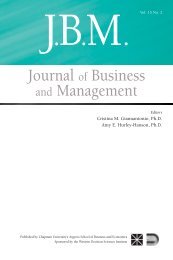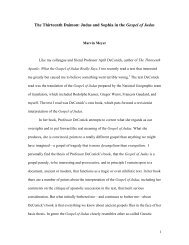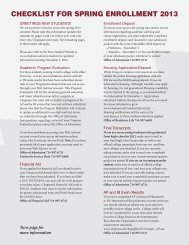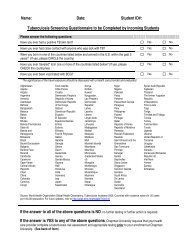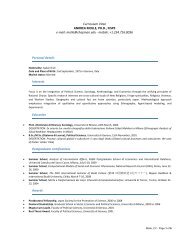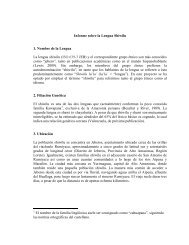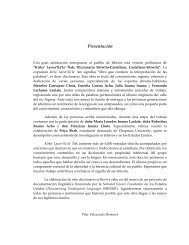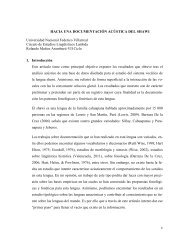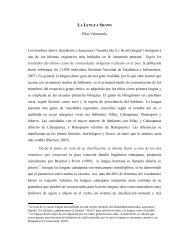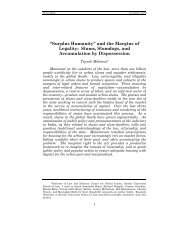Chapman Law Review - Chapman University
Chapman Law Review - Chapman University
Chapman Law Review - Chapman University
Create successful ePaper yourself
Turn your PDF publications into a flip-book with our unique Google optimized e-Paper software.
Do Not Delete 12/7/2011 2:17 PM<br />
18 <strong>Chapman</strong> <strong>Law</strong> <strong>Review</strong> [Vol. 15:1<br />
important information on the potential for the CEO to exercise<br />
dominance over board decision-making.<br />
Delaware currently has no legislative requirements on the<br />
make-up of the board. Delaware common law examines director<br />
independence under a duty of loyalty and a demand futility<br />
analysis. 111 The analysis focuses on whether a director is<br />
interested or independent. 112 In a demand futility analysis, the<br />
court assesses whether a director is personally interested in the<br />
outcome of the litigation, or whether the director benefits or<br />
suffers directly from the outcome of the shareholder litigation. 113<br />
Director independence in a duty of loyalty analysis also includes<br />
an assessment by the court of whether the director is dominated<br />
by an interested director. 114 In determining whether a director<br />
might be beholden to an interested director, Delaware courts<br />
have focused on whether there were financial ties between the<br />
directors. 115 Although the burden of proof depends on whether<br />
the allegations of lack of director independence are at the<br />
demand futility or the fiduciary analysis stage of the litigation,<br />
Delaware relies on its business judgment rule presumption and<br />
enhanced judicial scrutiny of board decisions in circumstances<br />
when there is a conflict of interest or breach of the duty of<br />
loyalty. 116 Provided an independent board or a committee has<br />
performed its duties in good faith, Delaware courts are reluctant<br />
to substitute its judgment for that of the board. 117<br />
While Delaware law permits shareholders to raise issues of<br />
domination in the context of assessing director independence,<br />
Delaware‘s fiduciary duty does not permit shareholders to shift<br />
the burden to directors to demonstrate that a board leadership<br />
structure in which the CEO is also chairman is not a conflict of<br />
interest or otherwise a breach of the duty of loyalty. 118 Provided<br />
the directors otherwise demonstrate independence and good<br />
faith, the board will be entitled to the business judgment rule<br />
presumption. 119 Delaware fiduciary law has done little to<br />
address directly CEO biases and domination when the CEO holds<br />
111 See In re Tyson Foods, Inc. Consol. S‘holder Litig., 919 A.2d 563, 582–83 (Del. Ch.<br />
2007) (discussing the Aronson test for demand futility and the test for determining<br />
whether a duty of loyalty claim survives a motion to dismiss); In re Oracle Derivative<br />
Litig., 824 A.2d 917, 939 (Del. Ch. 2003) (discussing the standards set forth in Aronson v.<br />
Lewis and Rales v. Blasband).<br />
112 In re Tyson Foods, Inc. Consol. S‘holder Litig., 919 A.2d at 582.<br />
113 Id.<br />
114 Id.<br />
115 In re Oracle Derivative Litig., 824 A.2d at 936.<br />
116 In re Tyson Foods, Inc. Consol. S‘holder Litig., 919 A.2d at 582.<br />
117 Id.<br />
118 Id.<br />
119 Id. at 584.



